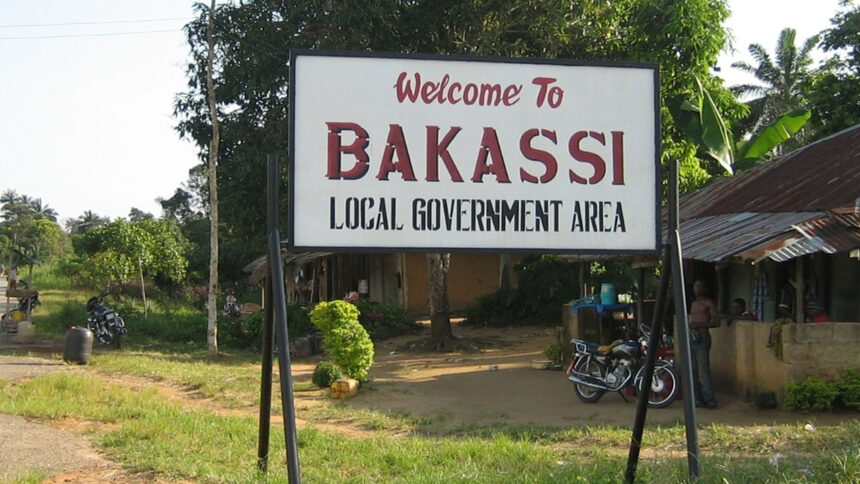A wave of tension is currently brewing in Nigeria’s Cross River State as local leaders and residents have raised alarms over allegations surrounding Cameroon’s land grab in Bakassi and environs.
Many residents of Cross Rivers have accused Cameroonian authorities of allegedly encroaching on Nigerian territory beyond the Bakassi’s oil-rich peninsula and areas ceded by Nigeria to the Central African nation, following the International Court of Justice (ICJ) ruling in 2002. However, the judgement was not without heated controversies in the affected Bakassi communities, who had shared centuries-old history, culture and nationhood with Nigeria prior the ICJ ruling.
Emerging claims from Cross River, South-south Nigeria revealed that Cameroon has allegedly claimed the ownership of western Bakassi, said to have been left for Nigeria in the ICJ ruling.
This has escalated a decades-long border dispute that many believed was resolved.
History of Conflict in Bakassi
The Cameroon-Nigeria border dispute revolved around the oil-rich Bakassi peninsula. The conflict escalated in the 1980s and 1990s, leading to armed clashes.
The dispute had roots in historical agreements and colonial boundaries, with Nigeria initially claiming the border before the 1913 British-German agreements, while Cameroon asserted ownership of the border under the agreements.
Following the clashes, Cameroon took the matter to the ICJ based in the Hague, Netherlands. In 2002, the ICJ ruled in favour of Cameroon, awarding them ownership of the Bakassi peninsula.
The Court ruled that sovereignty over the Bakassi Peninsula belongs to Cameroon, based on the Anglo-German Agreement of March 11, 1913.
The Greentree Agreement, signed in 2006, facilitated the withdrawal of Nigerian troops and the transfer of authority to Cameroon, though this process has continued to be debated due to the interpretation of the ICJ’s judgment.
Concerns and Calls for Resolution on the Bakassi Peninsula Issues
Meanwhile, recent claims emerging suggest that Cameroon has overstepped its boundaries, with local leaders reporting that Cameroonian forces have taken control of additional Nigerian villages and maritime territories.
Speaking on the development during an interview with Arise TV on Monday, August 4, 2025 and monitored by Pan-Atlantic Kompass, Mr John Lebo, a lawyer and former Speaker of the Cross River State House of Assembly, claimed that Cameroon’s land grab in Bakassi has allegedly displaced residents and disrupted fishing.
Lebo explained that the 2008 Green-tree Agreement (GTA), brokered by the United Nations was meant to establish the Cameroon-Nigeria Mixed Commission (CNMC) to demarcate land and maritime boundaries.
However, the former lawmaker claimed that before the CNMC could complete its work, Nigeria’s federal authorities, including the National Boundary Commission and the Revenue Mobilisation and Fiscal Commission, decided to reallocate 76 oil wells in western Bakassi to Akwa Ibom State and 85 to Rivers State, based on their interpretation of the ICJ judgment.
He said this move gave birth to the alleged injustice of Cameroon’s land grab in Bakassi.
He said: “The injustice against Cross River State began with the implementation of the ICJ judgment by Nigeria.
“For instance, while Nigeria negotiated and made gains in the land boundary demarcation in the Northern Nigeria Lake Chad region, it lost massive maritime territory in the Bakassi peninsula.
“The ICJ judgment specifically gave out southern Bakassi to Cameroon, leaving Western Bakassi in Nigeria. The geological and hydrological survey before and after the ICJ judgment located 76 oil wells in Western Bakassi to cross River State and 85 oil wells in Rivers State.
“The ICJ judgment was only implemented by the Signing of the Green Tree Agreement GTA in 2008, where Nigeria and Cameroon set up the structures for the handover of the Southern Bakassi peninsula to Cameroon and initiated the Joint Boundary demarcation committee between Cameroon and Nigeria called the CNMC Cameroon Nigeria Mixed Commission.
“While the committee was even yet to dermacate the actual boundary line and map the territories belonging to Nigeria and Cameroon over Bakassi and Lake Chad, the federal government through the National boundary commission and Revenue Mobilisation and Fiscal Commission, hurriedly took steps and awarded the 76 oil wells located in western Bakassi to Akwa Ibom state as well as the 86 oil wells belonging to Rivers state.
“To arrive at the decision to allocate the 76 oil wells in Western Bakassi to Akwa Ibom, the then Attorney General of the Federation who later became personal Lawyer to Akwa Ibom, the Federal ministry of justice, national boundary Commission and other federal agencies, carried out a hasty theoretical interpretation of the ICJ judgment and lose of Southern Bakassi to Cameroon and concluded that Cross River State was no longer a litoral state having been cut off the Atlantic Ocean and therefore does not have land coastal boundary into the Atlantic Ocean.
“Therefore, in their understanding, Akwa Ibom State immediately replaced Cross River State location in front of the Atlantic Ocean by virtue of the ICJ judgment and became an automatic beneficiary of the 76 oil wells.
“The layman’s understanding of the interpretation is that Nigeria lost the southern Bakassi peninsula to Cameroon.”
Reacting to arguments that the issue of land demarcation has also been decided on by the Nigerian Supreme Court, Lebo asserted: “The judgment of the Supreme Court was inspired and influenced by a wrong policy advisory decision of the National Boundary Commission.
“They have not concluded the hydrological survey to determine the geolocation of those oil wells. They have not even concluded the boundary demarcation between the crossover and Akwa Ibom. And they went ahead and did allocation. We have done our survey. We have done our report. We work with the Soviet General of the Federation, the National Boundary Commission, and revenue mobilization, and we have presented a report to the President.”
Lebo further called on the Nigerian government to immediately wade into the allegations of Cameroon’s land grab in Bakassi.
He emphasized the need for urgent diplomatic and legal action. Domestically, he also called for a review of the oil well reallocation, arguing that it was based on flawed assumptions and incomplete data.
He added: “First of all, separate the judgment of the ICJ as a judgment between Nigeria and Cameroon, not a judgment between Cameroon and Cross River.
“The judgment of the ICJ, if implemented on the 1913 map, places the boundary between Nigeria and Cameroon on the Mount of Cross River and Akwa Efiat.Akwa Efiat in Akwa Ibom state is to the north of the Atlantic Ocean, while Cross River State is to the east of the Atlantic Ocean. That is where the map puts the boundary.
“That placed Cross River State in front of the Atlantic Ocean. The issue of whether or not Cross River State is not litoral state is an internal decision of Nigeria, which was not necessary.
“Our argument is that you just have to wait. 90 kilometers of that maritime boundary have still not been demarcated as of now. We have not been able to specify to Cameroon that your boundary stops in Bakassi, don’t move beyond Bakassi. We have left it open. The National Boundary Commission went and drew a map that entered Akwa Ibom. That is why Cameroon is now looking for oil wells in Akwa Ibom.”
National Assembly’s Efforts on the Border Issues
Recall also that the Nigerian Senate, last week, resolved to constitute an ad hoc committee to investigate the “illegal annexation of mangrove and maritime territories” of Cameroon.
The resolution came after Senator Asuquo Ekpenyong Jr., the lawmaker representing Cross River South Senatorial district of Cross River at the Senate, made a case on the floor of the chamber.
Addressing the Senate, Senator Ekpenyong submitted that: “The unjust ICJ judgment 23 years ago has caused untold and unimaginable hardship to the people of Cross River State, specifically, the people of Bakassi. That judgment had certain conditions, such as the appropriate resettlement and reintegration of the people of Bakassi. Until today, that has not been effected.
“Beyond that, there were issues that arose from the ceding of Bakassi such as the loss of oil wells from Cross River State. These are issues that have led to untold hardship, once again. We have internally displaced persons in Cross River State. Not just Cross River South, in Cross River Central, and parts of Cross River North.
“Distinguished colleagues, before the 23rd day of September 1987, Cross River State and Akwa Ibom State were one State. This implies that issues affecting the border or territory of Akwa Ibom State also indeed affect Cross River State.
“I would like to propose the discussion of the prayers that have been proposed by my friend and colleague, Senator Aniekan Bassey, that we expand the scope of this motion, which deals with just the mangrove islands, to disputed territories within the Cross River/Akwa Ibom region and Cameroon.”
Following the argument, the President of the Senate, Senator Godswill Akpabio unveiled a nine-man committee.
The committee which will be led by Senator Jimoh Ibrahim included Senators Adegbonmire Adeniyi, Seriake Dickson, Kaka Shehu, and Ipalibo Banigo are also in the committee. Others are Senators Jarigbe Agom, Sampson Ekong, Bello Abubakar, and Bassey Aniekan.





